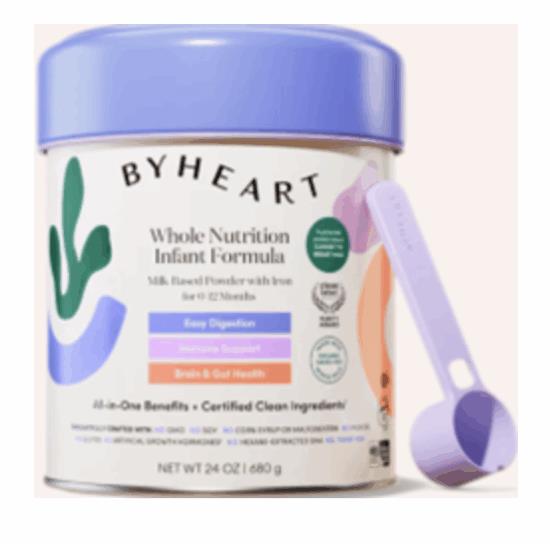
A U.S. representative is pressing the FDA for information about ByHeart Inc., the company linked to an outbreak of infant botulism poisonings.
In a letter to FDA Administrator Marty Makary, Rep. Rosa DeLauro, D-CT, demanded that all inspection records of the company’s infant formula manufacturing plants be released to Congress. The plants are in Reading, PA, Allerton, IA, and Portland, OR.
DeLauro cites media reports that ByHeart shut down one of the plants earlier this year after Food and Drug Administration inspectors found multiple food safety violations including a leaking roof and more than 2,500 dead insects in a production area.

“The FDA classified the inspection as its highest tier of concern. This reporting raises serious concerns about the company’s food safety record,” DeLauro wrote.
“The time for transparency is now. American parents deserve to know the formula they give to their children is safe.
“Due to the pressing nature of this issue, I request this information by Wednesday, Nov. 19.”
The infant botulism outbreak has sickened 24 babies across 13 states, according to the FDA and the Centers for Disease Control and Prevention. All of the babies had to be admitted to hospitals. Earlier this month, public health officials notified ByHeart’s founder and CEO Ron Belldegrun that there were at least 84 cases of infant botulism poisoning since August. 1.
Dr. Erica Pan, California’s top public health officer, told The New York Times that the department noticed an uptick of reports beginning on Aug. 1. Of about 84 infants treated for botulism, she said, about 36 were fed formula, including at least 15 who ingested ByHeart formula. Federal health officials say there only about 130 to 150 cases of infant botulism poisoning each year, making the number of cases since Aug. 1 likely from the same source.
California’s health department collected an open can of ByHeart formula from a patient’s home, which tested positive for the outbreak strain of botulism.
ByHeart has recalled all of its formula products, including cans and single-serve pouches.
The problems at a ByHeart production facility have been going on since at least 2022, according to an FDA warning letter sent to the company on Aug. 2, 2023.
In the warning letter, the FDA pointed out that the company had not established a system of process controls designed to ensure that infant formula in the production plant does not become contaminated with microorganisms. The FDA also noted that on Oct. 22, 2022, the company reported to (redacted) that a batch of ByHeart formula had tested positive for Cronobacter. Cronobacter can cause serious infections in babies that are often fatal.
At first, the positive test result showing contamination with Cronobacter was said to be a lab error, but further investigation showed this to not be the case.
“the third-party laboratory provided an ‘OOS Result Investigational Report for Microbiological Testing’ regarding the Cronobacter sakazakii findings in finished product, which concluded that ‘Laboratory error was not found or supported,’ “according to the warning letter.
“The third-party laboratory reached this conclusion after reviewing its internal protocols and testing conditions, finding no basis to attribute the sample results to laboratory error. Typically, a conclusion of lab error within an RCA is supported with confirmed evidence, such as written confirmation from the third-party laboratory attesting to the error. Here, there is no attestation; there is evidence to the contrary.
“Despite the discrepancy between the third-party laboratory and the internal conclusion within (redacted) root cause analysis, neither you nor your subsidiary company, (redacted), took any additional efforts to evaluate other routes of contamination that may have contributed to this event. Our review of your records obtained during the (redacted) inspection show that you did not work with your third-party contract manufacturer to further investigate the origin(s) or root cause(s) of the finished product positive findings. As the parent company and entity making all product disposition decisions, it is your responsibility to investigate all aspects of the production process for your products, including operations conducted at your (redacted) facility and your third-party contract manufacturer’s facility, when evaluating the potential root cause(s) for a product contamination event.”
(To sign up for a free subscription to Food Safety News, click here)






